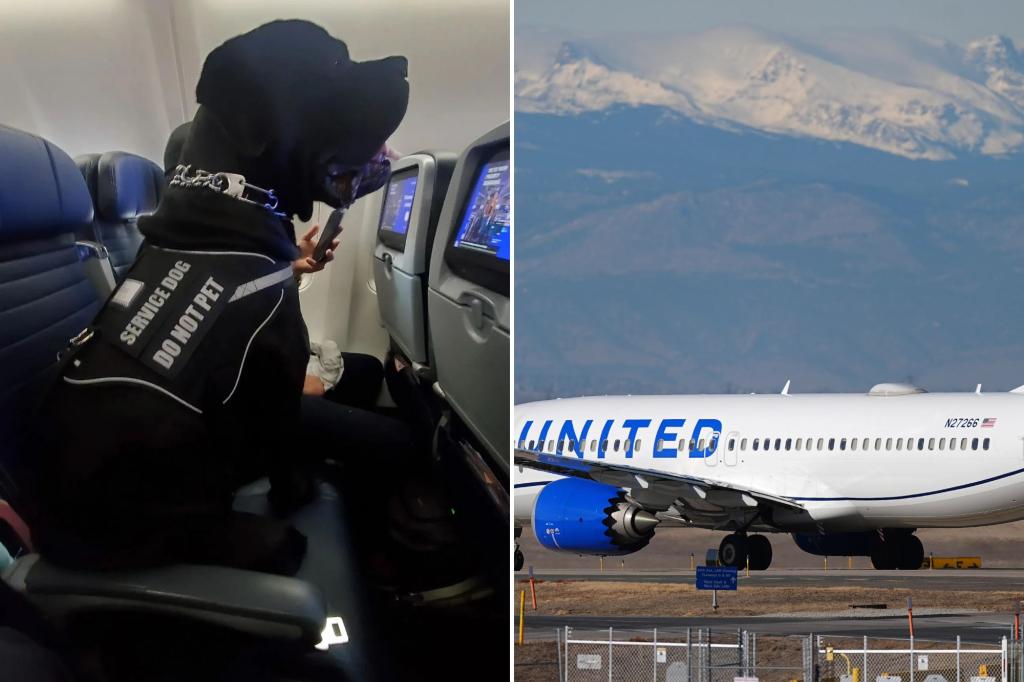Air travel has become a source of contention for passengers as airlines prioritize accommodating “service” dogs over human travelers. In a recent incident on United Airlines, a passenger was forced to give up their seat for an “enormous service dog” that was unable to fit comfortably on the floor. Despite the passenger’s protestations, the flight attendant appeared indifferent to the situation, leading to the passenger being displaced from their assigned seat. With the flight fully booked, the passenger had no choice but to find an alternative seat for the duration of the flight, while the dog remained in their original seat.
The situation sparked outrage online, with the affected passenger sharing their experience on Reddit. The passenger called for airlines to crack down on passengers abusing the allowance for service animals, questioning how such a large dog could be permitted to take up a paying passenger’s seat without purchasing an extra seat. United Airlines policy dictates that service animals should sit on the floor space in front of the owner’s seat, rather than on the seat itself. The passenger expressed frustration at the inconsistency in monitoring the size of carry-on luggage versus the size of service animals, resulting in a lack of accountability for dog owners.
This incident is not an isolated one, as a Delta passenger was also displaced from their first-class seat to accommodate a service dog on a previous flight. When contacting airline support for clarification, they were informed that passengers may have to be relocated to accommodate service animals and there is no recourse for affected travelers. The increasing prevalence of service animals on flights highlights the need for clearer regulations and enforcement to ensure the comfort and safety of all passengers on board. As more passengers rely on service animals for various reasons, understanding and addressing the impact on other travelers is essential for maintaining a positive flying experience for all.
The growing trend of service animals on flights raises concerns about the potential abuse of allowances and lack of oversight in determining the suitability of animals on board. While service animals provide valuable support for their owners, their presence should not come at the expense of other passengers’ comfort and safety. Airlines need to establish clear guidelines and protocols for accommodating service animals, including size restrictions and seating arrangements. By prioritizing the needs of all passengers, airlines can create a more inclusive and harmonious flying experience for everyone on board.
Additionally, passengers should be made aware of their rights and options when faced with situations where their comfort or safety is compromised by an animal on board. Clear communication from airlines about the policies and procedures for handling service animals can help prevent conflicts and promote a more seamless travel experience for all passengers. By addressing these issues proactively, airlines can better serve the diverse needs of their customers while ensuring a positive and respectful environment for all travelers. Ultimately, creating a balance between accommodating service animals and prioritizing human passengers’ needs is essential for fostering a welcoming and inclusive travel experience for everyone.


